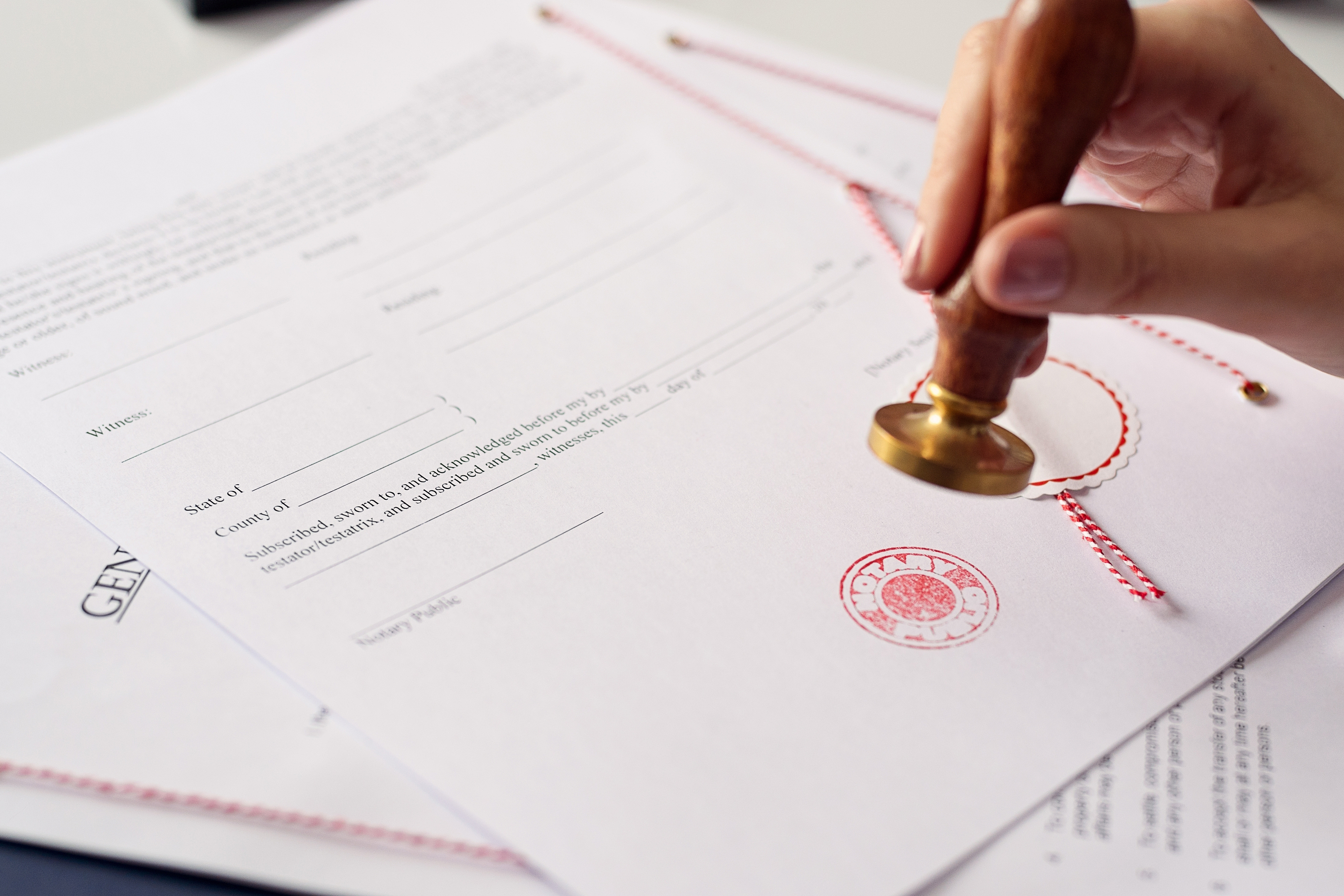U.S. citizenship is available to aliens who meet the conditions of one of the grounds for status. Basic requirements for adult applicants include having no criminal record, a pledging an oath of allegiance, and adhering to the principles of the Constitution. The detailed conditions for granting status based on different grounds are listed in the local citizenship law, HR 1177.
Certain categories of applicants are eligible for legal residency, including family members of U.S. citizens, investors, refugees, and highly qualified employees. An American passport is the fourth strongest in the world. It grants the holder the right to permanent residence in the second-largest GDP country and visa-free travel almost everywhere. Please read on for details about registering for U.S. citizenship, including terms, prices, and applicant requirements.
U.S. migration policy is strict compared to other economically developed countries. explain how to reduce the risk of refusal during the immigration process.
Benefits of U.S. citizenship in 2026
A U.S. passport provides its holder with the following benefits:
- Travel to 173 visa-free countries;
- Permanent residence in the United States, which includes access to the labor market, education, and business activities;
- Simplified registration of similar status for other family members (spouse and children);
- Access to social support programs, tenders, and competitions for government grants and funding programs;
- Comprehensive support from the U.S. government at home and abroad;
- The opportunity to retain previous citizenship.
U.S. citizenship requirements for applicants
The general requirements for becoming a U.S. citizen include having no criminal record (in the U.S. or one’s home country) and a commitment to recognizing and respecting local laws. Prospective citizens must also meet the following criteria:
- Be at least 18 years old;
- Legal residence in the state with a residence permit (green card) for a fixed period of time — from three to five years, depending on the grounds;
- No public order violations or other unworthy behavior;
- Residence in the country for at least two and a half years out of the five-year period prior to submitting the request;
- Residence in the appropriate county where the application is filed for at least 90 days prior to submission;
- Successful completion a naturalization test that includes questions on the state language, laws, and history;
- Agreement to take a pledge of allegiance according to procedures established by local law.
Legal ways to get U.S. citizenship
A foreigner may obtain a U.S. passport through naturalization, either general or expedited, or by birthright. If a child is born in the United States, they are granted citizenship by the right of soil, and parents can later apply for residency through family reunification.
A United States passport cannot be purchased. However, investment in the local economy is the way to obtain a green card, relocation, and subsequent citizenship. To obtain citizenship by naturalization, applicants pay state fees for fingerprinting and applications, totaling USD 725. Birthright citizenship is granted free of charge.
General naturalization: 5-year path to U.S. citizenship
Foreigners who have lived in the United States for five years or more as permanent residents may apply for naturalization. To move to the United States with the right to further legalization, applicants first need to obtain an immigrant visa and later apply for a green card (permanent residence permit).
There are several ways to obtain an immigrant visa and a green card:
- Reunification with a spouse, parent, or child of citizens or permanent residents of the United States;
- Getting married to a U.S. passport holder (i.e., fiancé visa);
- Concluding an employment contract with a local company (suitable for highly qualified specialists with certain work experience);
- Investing financial resources in opening a business within the state;
- Investment under the EB-5 program requires an investment of at least USD 800,000 in a specific target employment area;
- Humanitarian grounds: registration for international protection, status as a victim of human trafficking, or refugee status;
- Restoration of previously lost permanent residency in the U.S.;
- Winning the annual diversity lottery;
- Other grounds (e.g., internationally recognized activities or religious service).
Citizenship, residence permit or business relocation anywhere in the world
- Live and travel freely around the world
- Expand borders for your business
- Ensure your children’s education at the best universities in the world

Leave an application and get a consultation specialist
Expedited naturalization for spouses and military members
For citizenship, the period of prior residence in the U.S. with a permanent resident permit is reduced to three years for legal spouses of local passport holders. State military personnel who have been on active duty for at least 12 months and are lawfully residing in the state with a permanent resident card are also eligible to apply for a U.S. citizenship.
Birthright citizenship and children of U.S. citizens
In the United States, there is the “right of soil,” which means that children born in the country to foreign nationals can obtain citizenship. Parents are not granted the privilege of obtaining an American passport upon their child’s birth.
Minor children whose father or mother holds a U.S. passport can obtain citizenship in the United States, regardless of where they were born. Children born in the United States receive citizenship automatically, while those born abroad must have their parents apply to a diplomatic mission.
Step-by-step process: how to apply for U.S. citizenship
To become a naturalized U.S. citizen, an immigrant must first obtain an immigrant visa and a green card upon arrival in the United States. Then, they must live in the country for a specified period of time. The applicant must collect and submit documents to United States Citizenship and Immigration Services (USCIS), attend an interview and undergo fingerprinting, pass an English proficiency and integration test, pay state fees, and pledge allegiance to the United States.
Obtaining U.S. citizenship is one of the most complex processes in the world. To learn about the details of obtaining citizenship and other popular immigration programs in developed countries, sign up for a free consultation with .
Obtaining an immigrant visa
To legally immigrate to the United States, an individual must choose a method to obtain the appropriate entry visa, compile the necessary documents, and submit an online application on the Consular Electronic Application Center’s official website. The applicant is then assigned an interview date at the consular office, diplomatic mission, or visa center of the United States that they selected.
During the interview, the applicant provides the required documents, answers questions from a government official about the purpose of the trip, and provides biometric data. Although the period for processing immigrant visa applications is not established by law, it usually takes 12-24 months according to reviews from those who have received the document. Foreigners can check the status of their requests online on the Consular Electronic Application Center’s website.
Transfer and permanent residence registration
If approved, an immigrant visa is attached to the applicant’s passport, authorizing them to enter the United States. However, in order to reside in the country, the foreigner must have a permanent resident identification card. To obtain the card, he/she must apply to the local Citizenship and Immigration Services office and submit a package of documents. With a green card, the applicant can stay in the United States for the next five years (unless exceptions apply), after which they can apply for American citizenship.
Document collection and preparation
The standard list of documents required to apply for U.S. citizenship includes the following:
- A completed English-language form (for naturalized immigrants, Form N-400);
- A permanent resident card and a photocopy of it;
- Two color passport-size photos;
- A receipt for the state fee payment;
- Civil status certificates (if applicable).

Additional documents may be required depending on your circumstances, such as a military service certificate. Foreign certificates must be translated into English by a licensed translator and apostilled according to legal requirements.
Application for citizenship
After preparing the dossier, applicants can submit a petition for U.S. citizenship by registering on the USCIS website. Naturalized immigrants must submit Form N-400, along with an electronic version of the required documents. The applicant may also mail the dossier. The USCIS will then send the candidate a notice with a case number, which can be used to check the status of the request on the official USCIS website.
Interview and fingerprinting procedure
After processing the application, U.S. Citizenship and Immigration Services invites the immigrant to a face-to-face interview. During the interview, an authorized immigration officer will ask questions to clarify the information provided on the N-400 form. Topics may include family ties, attitudes toward the United States Constitution, and ties to illegal organizations.
The applicant also submits biometric data, such as fingerprints, which are forwarded to the Federal Bureau of Investigation for a background investigation. At the interview, the applicant brings a complete set of documents matching those previously submitted electronically to the USCIS. The applicant will receive the interview results immediately after all necessary screening procedures are complete.
Naturalization test
A foreigner can apply for United States citizenship if they have demonstrated proficiency in the English language and integration into the local society. These criteria are evaluated through special tests that assess the applicant’s ability to read, write, speak, and understand English, as well as their knowledge of the state’s history and civic principles. Applicants are given two attempts to pass the exams.
A USCIS officer administers the naturalization test during a visit. However, there are some exceptions: individuals over 50 to 65 years of age who have resided in the United States for at least 15 to 20 years are not required to take the language test.
Citizenship
The immigrant’s application for United States citizenship is approved after they pass the necessary tests and examinations. The authorized authorities then invite them to pledge allegiance to the United States as a citizen. On the appointed day, the applicant visits the USCIS office, participates in the ceremony, and receives a citizenship certificate. With this certificate, the applicant is entitled to obtain official documents such as an ID and international passport, driver’s license, and civil status certificates.
Costs and government fees for U.S. citizenship in 2026
On average, it takes applicants up to eight years from the time they apply for an immigrant visa to become United States citizens. This period includes receiving an entry permit, living in the United States with a green card, and processing applications at each stage of immigration. The table below provides information on government fees:
| Cost item | Fee, $ |
|---|---|
| Immigrant visa | 205–775 (depending on the category) |
| Green Card | 220 |
| Application for citizenship (Form N-400) | 640 |
| Biometric data submission | 85 |
| Translator services | From 12 per page |
The cost of obtaining U.S. citizenship may include notary services, rent, transportation, and the services of immigration lawyers. The price depends on the applicant’s situation, the chosen grounds for citizenship, and the documents available. The price is calculated individually.
The cost of obtaining a U.S. passport is often higher than expected due to the numerous bureaucratic steps and lengthy immigration process.
can provide detailed information about citizenship conditions, current application processing times, and help find the most cost-effective immigration method.
How to apply for a U.S. passport after naturalization
Based on the citizenship certificate, an immigrant may apply for a U.S. internal passport, also known as a State ID. This document is a plastic card that includes the owner’s photo, biometric data, and personal information. The ID card is intended for use within the United States and for traveling to Canada, Mexico, Bermuda, and the Caribbean Islands (by any means of transportation). The step-by-step process to obtain a State ID has several steps:
- Fill out Form DS-11. Applicants can find a form for applying for an internal passport on the official website of the U.S. Department of State’s Bureau of Consular Affairs.
- Prepare the documents. The applicant must compile a dossier including a photocopy of the citizenship certificate, a color photo, and proof of payment of the state fee: USD 30 for the application and USD 35 for card production.
- Visit the Passport Agency. Applicants should choose a nearby office and come to the reception desk with a complete file. Some service offices require an appointment in advance.
- Track the status of the application. Applicants can check the status of their case on the Bureau of Consular Affairs website. The expected processing time for ID cards (as well as passports) is seven to nine weeks for the urgent procedure and 10 to 13 weeks for the expedited procedure.
- Obtain the document. Once approved, the completed ID card and supporting documents submitted to the passport office are mailed to the applicant.
In addition to the State ID, foreigners can request an American ID card for travel abroad. This document resembles a book with a blue cover, an electronic chip, and pages for visas. The process for obtaining a U.S. passport is the same as for obtaining a national ID card. Applicants have the right to request both documents at the same time. The state fee for a passport is USD 130 for the application and USD 35 for the passport itself. Passports are valid for 10 years for persons over 16 and 5 years for children.
Does the U.S. allow dual citizenship?
As of 2026, the United States does not have any dual citizenship treaties with other countries. However, U.S. law permits immigrants to obtain a U.S. passport without renouncing their previous citizenship. Individuals with dual citizenship in the United States and another country are considered local citizens with corresponding rights and obligations. The United States does not notify the individual’s home country when they obtain a second passport.
Reasons for denial or revocation of U.S. citizenship
An applicant may be denied U.S. citizenship if they have a criminal record, ties to organizations that are unwelcome in the U.S. (e.g., terrorist organizations), or have committed acts that indicate low moral character (e.g., violating public order). A request will not be approved if the applicant has violated the country’s immigration laws, has tax debts, or is in military or government service abroad.
U.S. citizenship can be revoked if an applicant knowingly provides false information during registration. Illegal stay in the country is punishable by fines, deportation, and imprisonment.
Legal assistance with U.S. immigration and citizenship
According to feedback from foreigners who have obtained U.S. citizenship, the process of becoming a legal resident requires thorough knowledge of legislative norms, serious preparation for the interview, and legal grounds for an immigrant visa. Foreigners can simplify the process of obtaining an American passport by contacting specialists in international law.
iWorld specialists are client-oriented and recommend the best immigration programs depending on the applicant’s situation. They handle most of the tasks that arise before a person can legally reside abroad and provide detailed advice on the pros and cons of different ways to obtain the desired status.
Still have questions?
Ask a migration specialist for free















